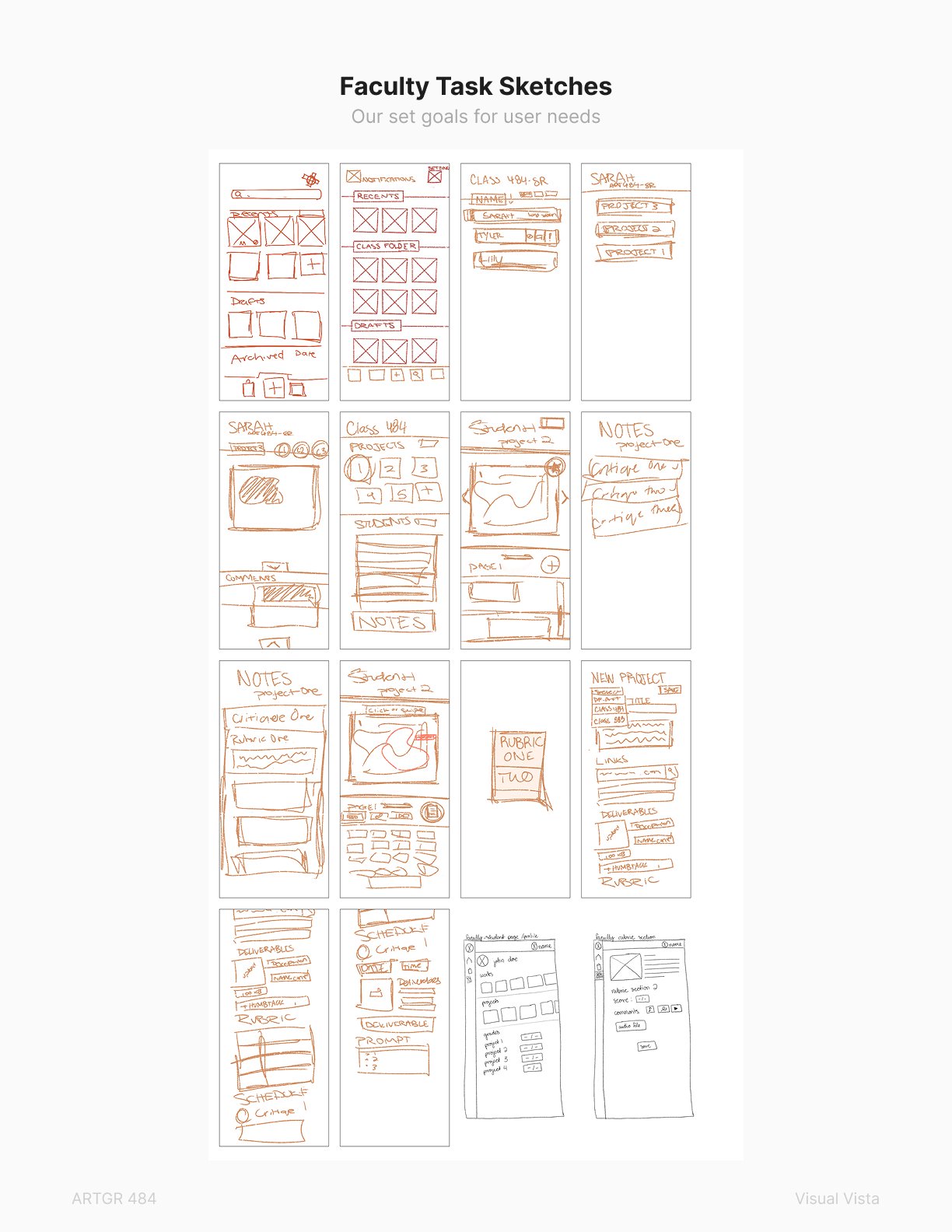Visual Vista
(Critique Web)
Higher Ed
Web Design
UX/UI Design
Education Design
Overview
Visual Vista is a design-critique collaboration web for the college of design in institutions. The platform allows students share their creative works with confidence and faculty to give feedback with seamless interactions.
Project Overview
01
Visual Vista is a multi-stakeholders platform for design schools to review and host work reviews on college students work. Faculty members can view student work and provide feedback. Additionally, students can submit and manage their work through their own portal. System managers can manage user accounts.
Tools
Figma | Iconify (Plugin) | Adobe Illustrator | Photoshop | Box | Google Form
Timeline
4 Weeks
Team Members
Elysse Payne | Gabriele Basa | Hannah Berg
Problem Statement
02
The platform will also allow boost students’ confidence by creating an engaging and safe space for aspiring designers to share their works and give feedback to fellow students.
My team intended to create a platform for mutual collaboration to foster knowledge and growth. Students will be able to get insight on their work, and faculty will be able to help mentor the next generation of designers.
✏️ Key Points on Project Mission -> A website for student creatives or designers, faculty and admin to share work, give feedback, and space management with ease and confidence with a constructive learning environment.
User Research
03
The team began by conducting target audience interviews to gather primary information. Each team member interviewed one student, one faculty, and one professional administrator who work on campus and college of design.
🎯 Interview Goals
Understanding concerns and worries of why target audience never or stop giving feedback on web critique
Navigate the feelings and thoughts of users on why they do or don’t give feedback
Understanding needs and dream features
Evaluate accessibility requirements
8 participants analyzedInterviewees analysis✏️ Majority of students feel nervous and not confident before and when giving feedback.
The team wanted to foster users’ feelings and stance when interacting in the platform. The team summed up the essential aspects of users into three gains: autonomy, confidence and versatility.
The team evaluated and analyzed the results and percentages of the interviews. We decided to reconstruct the motivations of the user tasks from directly focusing on technical functions to considering users’ needs and feelings before deciding what key tasks we would propose.
Research Development
04
The team began with design by creating target personas and analyzing personas’ pain points. By navigating personality and pain points, the team farther the process ahead by investigating users’ goals and pain points.
User Persona
a



Value Proposition
b
The team restructured the initial values of the platform to be more defined where stakeholders get more gains and their pain points’ will be lessened. The main key points are to create a seamless autonomic space for each user and gain confidence in interactions.
All stakeholders user flows✅ Solution
Easy-to-Use Platform
Community Engagement through presentation and critique
Versatile Feedback Tools
Streamlined Administration Access Editing
Mass messaging for expectation of community and critique functions
Collaborative Environment of various educational backgrounds
Seamless Student-Faculty Interaction
Inclusive Communication
Sketches & Story Boards
c




User Goal Statement
d



Style Guide
e
Hi-Fi Screens
f
Ready for more design?
— Select any project below














